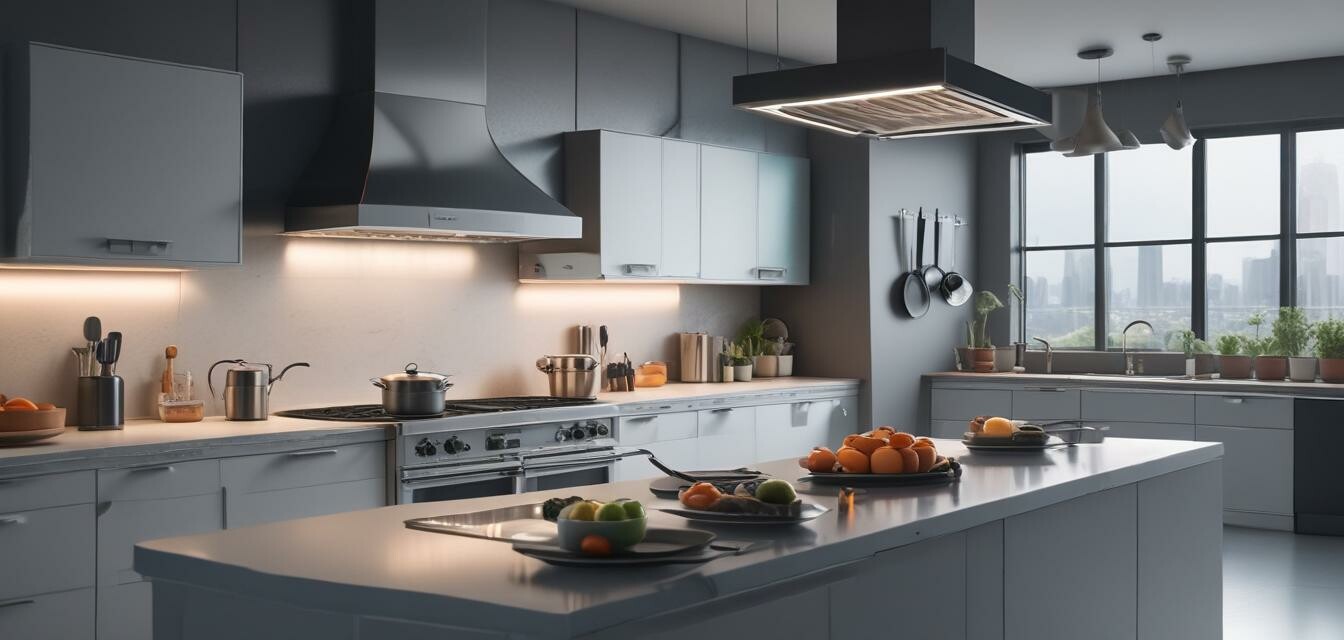
The Latest Innovations in Smart Cookware
Key Takeaways
- Smart cookware is redefining home cooking with advanced technology.
- Integration with smart home systems enhances convenience and efficiency.
- Safety features and energy efficiency are key trends in modern cookware.
- The rise of app-controlled cookware provides greater cooking versatility.
- Emphasis on sustainable materials is shaping the future of cookware design.
The cooking landscape is changing rapidly, thanks to advancements in smart technology. In 2025, smart cookware is making waves by enhancing cooking experiences and making our kitchens more efficient than ever. From app-connected pots to energy-efficient designs, there's a lot to explore. Let’s dive into the latest innovations in smart cookware that are transforming how we prepare meals.
What is smart cookware?
Smart cookware refers to kitchen tools and gadgets that incorporate advanced technology to facilitate cooking processes. These products often feature connectivity options, allowing them to interface with other smart home devices, providing real-time updates and control. With smart cookware, users can enjoy a seamless cooking experience complete with guidance and monitoring through mobile applications.
Current trends in smart cookware
As we step into 2025, several trends are becoming apparent in the realm of smart cookware:
- Integration with smart home systems: Many smart cookware products can now connect to home ecosystem systems such as Amazon Alexa and Google Home, allowing for voice-activated commands and control.
- App-controlled cooking: Applications enable personalized cooking experiences, where users can access recipes, adjust cooking times, and receive notifications.
- Health monitoring: Innovations also include health-focused features, such as calorie tracking and nutritional information directly from your cookware.
- Eco-friendly materials: Sustainable practices are influencing the design of cookware, with manufacturers focusing on recyclable and sustainable materials.
Safety and energy efficiency in smart cookware
Safety and energy efficiency are crucial components of modern cookware. Smart cookware often incorporates multiple safety features such as:
- Automatic shut-off: If a pot or pan is left unattended, it automatically turns off.
- Temperature control: Precise temperature monitoring helps prevent overcooking and potential hazards.
- Non-toxic materials: Manufacturers are increasingly focusing on using non-toxic, safe materials for cooking surfaces.
Comparison of traditional cookware and smart cookware
| Feature | Traditional Cookware | Smart Cookware |
|---|---|---|
| Temperature Control | Manual | Automated & App-controlled |
| Safety Features | Basic | Advanced |
| Usage Efficiency | Standard | Optimized for Time & Energy-Saving |
| Interconnectivity | No | Yes |
The future of smart cookware
As technology advances, smart cookware is set to evolve even further. The future holds possibilities for:
- AI-integrated cooking: Imagine pots that can learn your cooking habits and adjust accordingly.
- Increased compatibility: Future cookware will likely be compatible with a wider range of smart home devices.
- Seamless integration with meal plans: Smart cookware may integrate with meal planning apps to create a synchronized cooking experience.
Conclusion
Smart cookware is revolutionizing home cooking with its advanced technology and innovation. From enhanced safety features to energy efficiency, its impact is undeniable. As trends continue to evolve, so will the capabilities of cookware, ensuring that every meal can be crafted with precision and ease. To stay informed about the latest in smart kitchen technology, be sure to explore guides on Smart kitchen buying guides, or follow developments in kitchen technology news.
Pros
- Enhanced cooking control and customization
- Compatible with modern smart home systems
- Improved safety features
- Energy-efficient cooking options
Cons
- Potential for higher costs than traditional cookware
- Dependence on technology and apps
- Compatibility issues with some devices